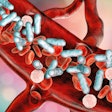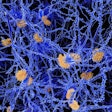
A panel of metabolites in blood and urine can show whether people are sticking to healthy diets as directed, according to a study published in the journal Nutrients.
The researchers evaluated dietary intervention and biomarkers in urine and plasma in a subset of 42 healthy participants in the randomized Diet and Genetic Intervention (DIGEST) study, which is testing the value of the "Prudent" Mediterranean-like diet for minimizing genetic risk for heart attacks. Self-reported dietary intake can be unreliable, and the goal of the subset study was to develop objective measures for evaluating food intake. Biomarkers were evaluated before and after two weeks on the diet.
"Overall, our results provide strong corroborating evidence of the utility of food exposure biomarkers to accurately differentiate complex dietary patterns in a free-living population outside a laboratory setting," wrote Philip Britz-McKibbin, PhD, a chemist at McMaster University in Hamilton, Ontario, Canada, and colleagues on October 9 in Nutrients.
New tech provides window on food
The study was conducted to fill a big gap in nutritional research and dietary interventions. Unhealthy diets are to blame for 20% of preventable deaths, yet there are few validated biomarkers that can be used to monitor daily food intake and capture dietary patterns, the authors wrote.
 Philip Britz-McKibbin, PhD, a chemist at McMaster University. Image courtesy of JD Howell, McMaster University.
Philip Britz-McKibbin, PhD, a chemist at McMaster University. Image courtesy of JD Howell, McMaster University."The advent of high throughput and low cost metabolomics technologies allows for a more accurate assessment of diet exposures applicable to large-scale epidemiological and clinical intervention studies," the authors wrote. "This is urgently needed to validate the utility of dietary biomarkers in nutritional epidemiology to better guide public health policies for the prevention of cardiometabolic and neurodegenerative disorders that increasingly impact an aging population."
The Prudent plan is similar to the Mediterranean diet, with a focus on consuming fruits, vegetables, whole grains, and nonprocessed foods. The researchers compared the Prudent diet with a typical Western diet high in saturated fats, refined grains, sugar, and processed foods.
The participants underwent metabolic profiling for 80 plasma metabolites and 84 creatinine normalized urinary metabolites at baseline and after two weeks of being on their dietary regimens. They also kept food journals.
While the participants' menus changed, their calorie counts and lifestyle habits stayed the same. Although there were no differences from baseline for body mass index, blood pressure, and standard lipid inflammatory biomarkers, there were marked differences in blood and urine metabolites depending on whether the Prudent or Western diet was being followed, the researchers found.
The most significant and consistent dietary biomarkers in plasma and urine for those on the Prudent diet were 3-methylhistidine and proline betaine, likely due to the intake of fruit and protein, the researchers reported. They also found that two urinary biomarkers were sensitive and noteworthy for people on the healthier diet: 5-hydroxypipecolic acid and imidazole propionic acid were both associated with the intake of fiber, fruits, and vegetables.
"These dietary biomarkers reflect greater consumption of health-promoting foods containing insoluble fiber, protein, essential vitamins/electrolytes, and bioactive phytochemicals with a low glycemic index as compared to highly processed foods in contemporary Western diets," Britz-McKibbin and colleagues wrote.
In contrast, the people on Western diets could be identified by a series of circulating saturated and polyunsaturated fatty acids and the following biomarkers: plasma myristic acid, linoleic acid, alanine, and urinary acesulfame potassium.
"Urine offers a less invasive and more convenient biofluid than blood with a wider detection window for tracking dietary biomarkers in observational studies; [however,] it is more variable when relying on random/single-spot samples due to between-subject differences in hydration status that require normalization," the authors wrote.
The authors acknowledged that the study was small and involved only one center. Future studies could further elucidate the biomarkers identified and incorporate fecal microbiome data, they noted.



















